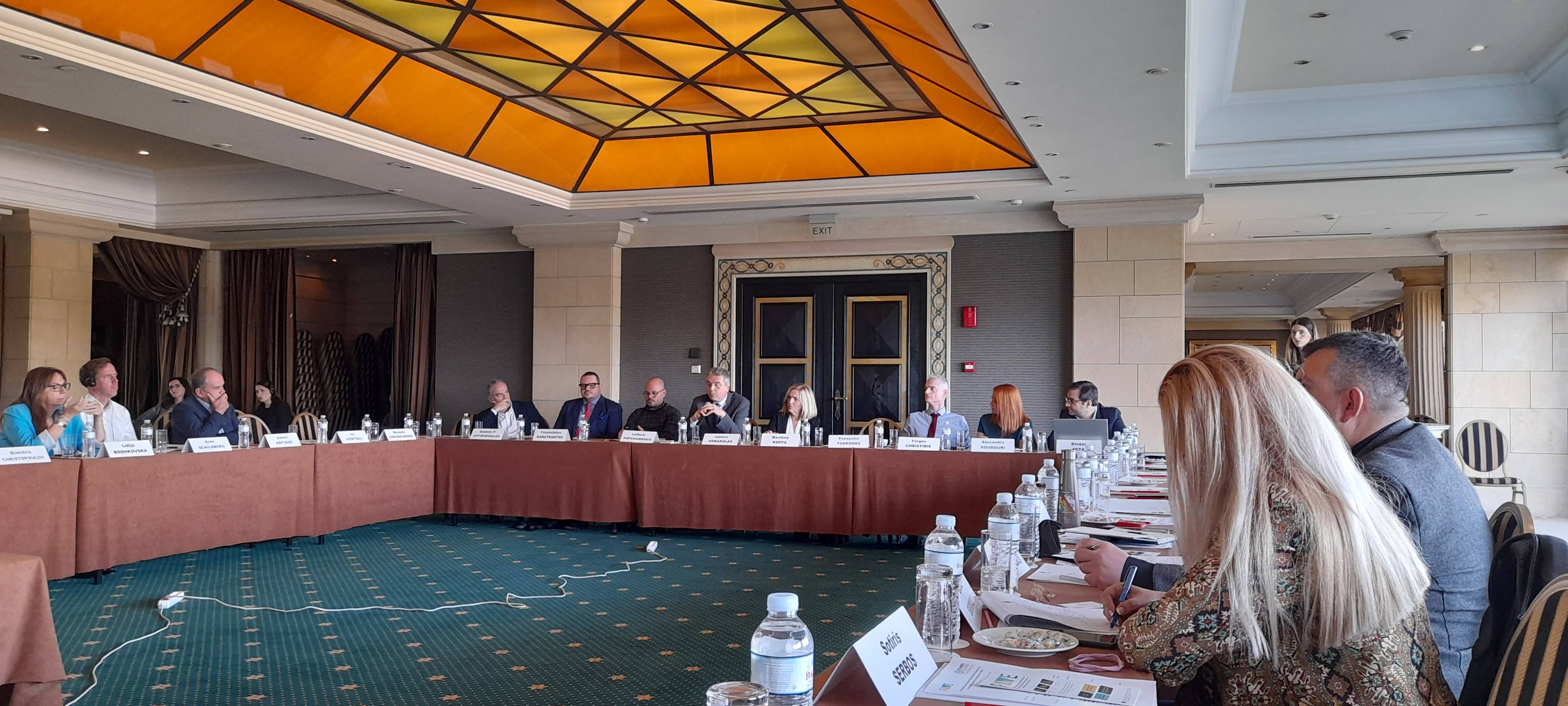PAVE Policy Roundtable in Athens
On October 24, 2022, the PAVE team of ELIAMEP organized a policy roundtable, in Athens, Greece. This event gathered radicalisation experts and analysts, journalists, and academicians, as well as representatives from state/governmental institutions, civil society, and embassies, providing a platform for further discussion on the trends of radicalisation leading to violent extremism in the European Union and the Western Balkan region.
The main objective of this policy roundtable was to present the research findings from the empirical research on the vulnerability of diaspora communities in European Union countries as well as the policy recommendations which the research team had formulated based on the findings of the empirical research conducted in two localities in North Macedonia. This policy roundtable aimed to strengthen the capacity of policymakers, relevant stakeholders, and officials that deal with radicalisation and violent extremism in Europe, Greece and the Balkans. Next to the research findings and policy recommendations, the Risk & Resilient Map on Radicalisation, an innovative tool developed by the research team of ELIAMEP, was presented.
The policy roundtable was organised into two parts. The first part focused on the findings of the field research carried out in North Macedonia, Kosovo, Bosnia and Herzegovina and Serbia. The presentation highlighted the dynamics of offline and online (de)radicalisation in the countries concerned and the factors that have shaped trends and developments with respect to ethno-political and religious radicalisation. During the discussion, Prof. Ioakimidis commented that the delay in the EU accession process has functioned as a vulnerability factor towards radicalization in North Macedonia, and highlighted the need for the EU to bridge the gap with the Western Balkans. The ambassador of North Macedonia in Greece, Lidija Boshkovska, stressed that the delay for the accession of candidate states is also a matter of the willingness of other EU member states (referring to the Bulgarian veto).
Commenting on the key findings of the PAVE research on diaspora communities in EU countries, the President for the Integration of Migrants in the Municipality of Athens Lefteris Papagiannakis made a reference to radicalisation patterns that are linked to the phenomenon of migration, bringing to the surface examples from the refugee crisis that hit Greece during 2015-2016. He recommended a stronger dialogue and engagement with representatives of the church, practitioners working in the education system, state officials and institutions in general.
A discussion on radicalization and security challenges for Greece took place in the second part of the event, with the participation of Michalis Chrisochoidis, Senior Policy Advisor, Former Minister of Citizen Protection, Ino Afentouli, Executive Director of the Institute of International Relations, and Panayotis Tsakonas, Senior Research Fellow, Head of the Foreign Policy and Security Programme at ELIAMEP and Professor at the University of Athens. The main concerns expressed regarding the Greek reality were those of violent Islamist radicalisation, the rise of the far-right in Europe, and organised crime. Michalis Chrisochoidis stressed the idea of total control over the Greek border, naming it as the gateway to Europe, and pointed out the necessity to comply with the Schengen agreement. With a reference to the liberal model of Europe and aligned with Michalis Chrisochoidis’ statement on an increase of border control, Ino Afentouli stressed the need to preserve the liberal model in the face of far-right wing narratives and radical behaviours. She also clarified that it is wrong to link violent extremism with migration. In addition, current crises (e.g. pandemic) accelerate the radicalisation and security issues on the rule of law.
